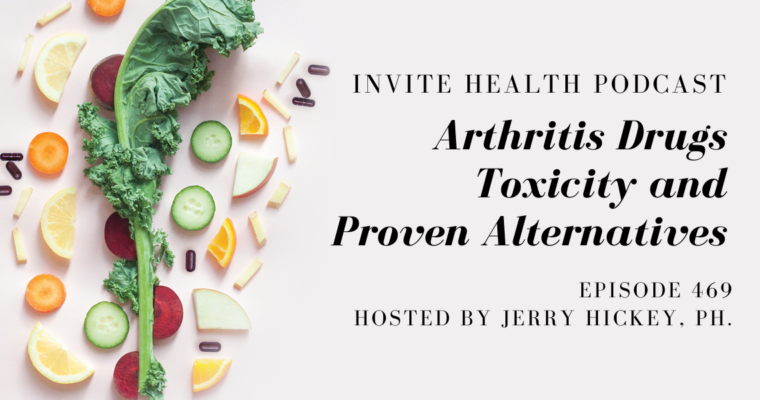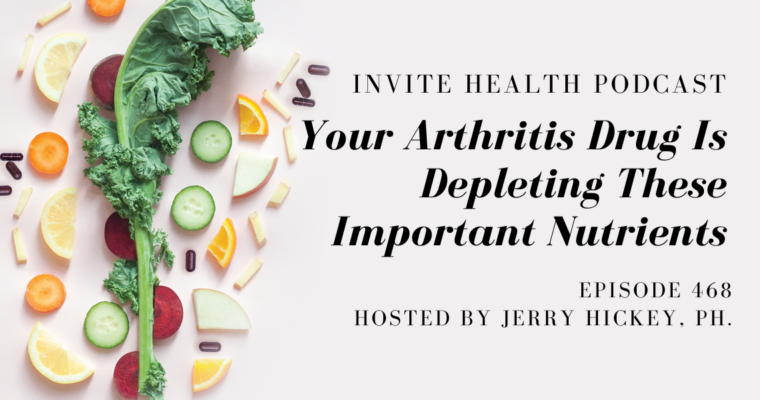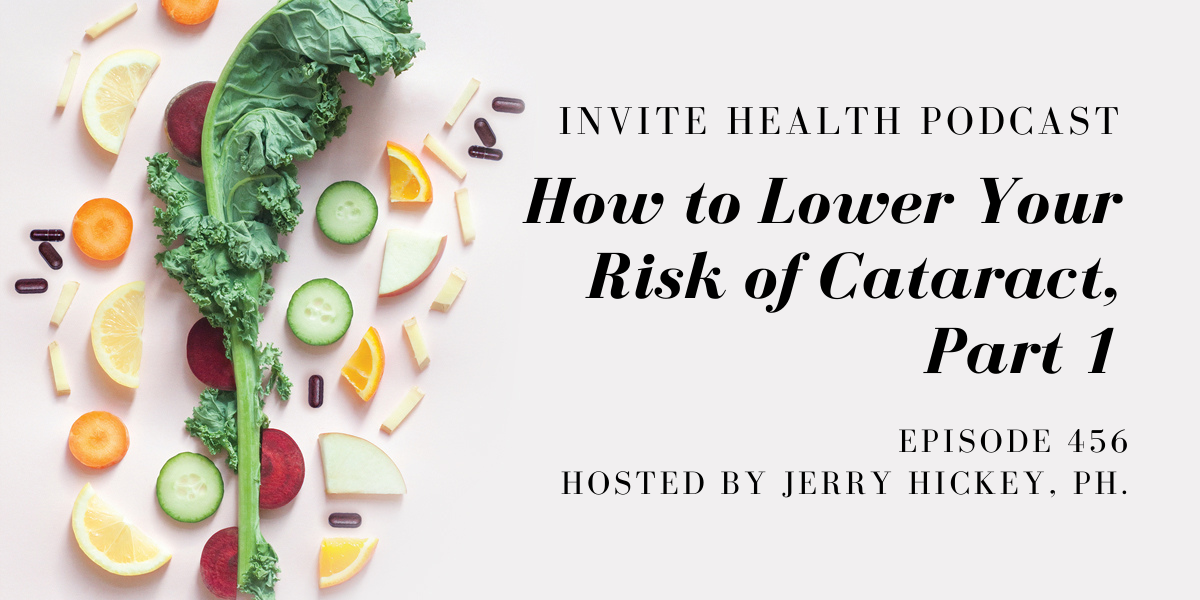cataract
InViteⓇ Health Podcast, Episode hosted by Jerry Hickey, Ph.
Subscribe Today!
A cataract is a clouding of the lens in the eye and this affects your vision. Most cataracts are related to aging. They are painless, but they really do cause a vision problem. The cataract creates a cloudy area in the lens of your eye, which blocks light from getting to the retina properly and makes it difficult for you to see clearly.†
How does a cataract affect your vision?
At first, you may not notice that you’re developing a cataract. Over time, stronger glasses and brighter lightbulbs might help, but eventually, that’s not going to work. Over time, the cataracts make your vision blurry and hazy. They even affect color. You start to have trouble reading, doing everyday chores and activities, and driving at night.†
Cataracts become common as you get older. In fact, more than half of all Americans currently have cataracts or have had surgery to get rid of them. In time, if not taken care of, a cataract can cause blindness.†
In a healthy eye, light enters through the crystalline lens and passes through to the retina. The lens focuses the light into a sharp image on the retina. The retina relays the images through the optic nerve through the back of the eye right into the brain. If the lens in front of your eye is cloudy from a cataract, it’s like using a camera with a smear of butter in front of it. The image you see will be blurry.†
DHA: THE KEY BRAIN-BOOSTING OMEGA-3 – INVITE HEALTH PODCAST, EPISODE 443. Listen Now>>
So what are the symptoms of cataracts? A cataract can cause blurry vision that may look filmy, hazy or even foggy. Glare is also an early sign of a cataract. You might become sensitive to light and have trouble seeing in bright sunlight. Indoor lights might seem too bright or have halos around them. Sometimes you may develop diplopia, which is double vision.†

Common risk factors for cataracts
Diabetes is a risk factor for cataracts. Most diabetics develop sorbitol-type cataracts. Quercetin can help short-circuit that. Aging is the major cause of cataracts. Smoking can contribute to this, as can drinking a lot because alcohol uses up your body’s antioxidants. Eye injuries and exposure to radiation or too much sun can also be risk factors for the development of cataracts.†
Some drugs may even contribute to cataracts. Corticosteroids, for instance, mimic the stress hormones we release from our adrenal glands. Stress hormones affect your blood sugar, electrolytes and more and can also lead to cataracts. There is also some evidence that NSAIDs like Advil and Aleve increase the risk of cataracts.†
Some studies also say that statin drugs may lead to cataracts. This is controversial, as some studies say yes and some say no, but I have to say it. The best thing is educating people. A study from the journal Atherosclerosis in 2016 looked 135,000 people who were treated with statins between 2005 and 2007. There was a slight but continuous trend towards an increased risk of a cataract in people who adhered to their statin therapy. It increased the risk of a cataract by about 20%.†
CHOLESTEROL-LOWERING STATIN DRUGS AND NUTRITIONAL SUPPLEMENTS – INVITE HEALTH PODCAST, EPISODE 441. Listen Now>>
In this episode, Jerry Hickey, Ph., begins a discussion on cataracts. He explains what they are and how they develop and also shares several factors that may contribute to your risk of developing a cataract. In Part 2 of this episode, coming soon, Jerry will continue the conversation and detail nutrients that can help to lower your risk of developing cataracts.†
Key Topics:
- Other eye conditions that can cause blurriness
- What causes cataracts?
- The role of the adrenal glands
Thank you for tuning in to the InViteⓇ Health Podcast. You can find all of our episodes for free wherever you listen to podcasts or by visiting www.invitehealth.com/podcast. Make sure you subscribe and leave us a review! Follow us on Facebook, Twitter and Instagram at InViteⓇ Health today. We’ll see you next time on another episode of the InViteⓇ Health Podcast.







